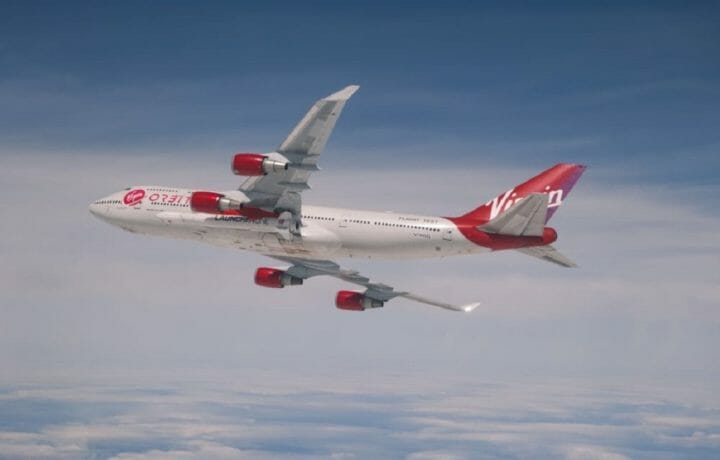Virgin Orbit subsidiary VOX Space, which operates the LauncherOne, has been selected by the United States Space Force to provide three separate launches for low Earth orbit (LEO) vessels in a contract worth an estimated $35 million. It will deliver multiple spacecraft to orbit for the Department of Defense (DoD) Space Test Program S-28 (STP-S28).
It is a launch service contract and was awarded by the USSF Rocket System Launch Program (RSLP) Office in Albuquerque, NM, and is the first task order under the Space Force’s Orbital Services Program-4 (OSP-4) Indefinite Delivery/Indefinite Quantity (IDIQ) contract.
More than 35 small satellites will be launched, and these will enable advancements in space domain awareness and communications while informing future developments of the USSF space architecture.
The United States Space Force is the latest customer for the Virgin space subsidiary that is dedicated to government launches, but it is also a major step forward for the company as it moves from testing to full operations. It has other launches planned; including those for the U.K. and Israeli governments, but payloads won’t likely be put into orbit until sometime next year.
“We are excited to partner with VOX Space and believe the STP-S28 mission will showcase industry innovation, international partnering and provide a gateway to work with some of the newest, leading-edge entrants for emerging small launch service providers,” said Lt. Col. Ryan Rose, chief of the Small Launch and Targets Division at Kirtland Air Force Base, NM.
The El Segundo, CA-based VOX Space will use its LauncherOne rocket, and its Space Force mission is now tentatively planned for October 2021.
“We’re very eager to bring a new standard of flexibility in launch to the U.S. national security community with LauncherOne,” said VOX Space President Mandy Vaughn. “We see the STP-S28 mission as an excellent example of how cutting-edge commercial launch systems like ours can enable the U.S. Space Force to execute missions in a way that’s more tactically responsive. We look forward to working with Col. Rob Bongiovi, Lt. Col. Ryan Rose, and their excellent team at the Space and Missile System Center.”
This is just one part of the OSP-4 program, a nine-year procurement of launch services that are worth a reported $1 billion. The Space and Missile System Center announced last fall that eight companies had been selected to compete for the OSP-4 launch services.
VOX and Virgin Orbit are quite different from other launch providers in that instead of having a traditional launch pad – such as those seen in Cape Canaveral in Florida, the launch vehicle consists of a rocket strapped to the belly of a 747. This has been seen as both a promising yet unproven technique for launching. It could allow the U.S. government to rapidly acquire flexible, resilient and affordable launch services, with the ability to launch missions with 12 to 24 months of the task order award.
The process has undergone years of testing and now Cosmic Girl, the name of the plane; and LauncherOne, the rocket stage that will take the payload to orbit, are almost ready for the big moment. VOX still plans to have one last rehearsal in the form of a “cryogenic captive carry flight,” which would be nearly the same as an actual launch, including having supercooled liquid in the rocket’s fuel tanks, but would stop short of detaching and firing the actual rocket’s engines.
A full burn and first orbital payload will be saved for the Launch Demo, which had been planned for later this year. The timetable could change due to the current COVID-19 pandemic however. In a blog post the company noted, “As the pandemic reached our home in California, we sent all of our staff home with full pay, giving them a week to prepare for the many changes that were to come for them and their families — and giving ourselves all the time we needed to design an entirely new way of working.”
Despite the possible setback Virgin Orbit CEO Dan Hart has remained optimistic about the program moving forward as planned.
“With the space domain more contested than ever, it’s crucial that we find ways to enable those responsible for space security to act quickly and effectively,” Hart explained. “Ultimately, we believe that affordable and responsive launch helps keep everyone safer — in part by creating a major disincentive for adversaries to work against existing satellites and space systems. LauncherOne is proving to be an impactful force for good as we work with our nation’s leaders to modernize our space systems and help keep people safe.”
Last month, before the widespread outbreak of the coronavirus, the company performed a test taxi of the 747-400 Cosmic Girl at the Mojave Air and Space Port in California.



